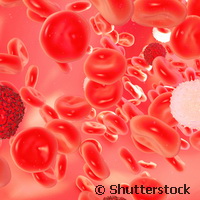New biomarker to help detect early stage cancer
The earlier cancer is detected, the more successful treatment is likely to be. Yet while this is a key message behind many public health campaigns, detection methods are still being improved. One way of spotting the disease is to test for certain substances - known as tumour markers - found in the blood, urine or body tissue when cancer is present. Very few of these tumour markers have been identified for early-stage cancers. This delays detection and, ultimately, treatment. The FLOWERFIELDS ('Early-Stage Tumour Markers Based on the Flower Proteins') project, led by Dr Eduardo Moreno at the University of Bern, is aiming to help doctors make a diagnosis before aggressive tumours develop. The project is funded by the European Research Council (ERC) under the EU's Seventh Framework Programme (FP7). This is a 'Proof of Concept' project that was awarded to Dr Moreno as a result of his work during his ERC Starting grant project SUPERCOMPETITOR in which he explored the concept of cell competition in the context of tumour proliferation. Most human tumours are quite advanced when detected as they are only spotted when morphological changes occur. But by this stage, treatment options are often reduced. A US study found that 80 percent of women suffering from epithelial ovarian cancer already have signs of spreading by the time of diagnosis, resulting in only 19-32 per cent surviving five years. In contrast, early detection increases the five-year survival rate to between 80 and 90 per cent. Very early stage cancer and precancerous cells are known to express a molecular code known as the Flower Code in what are known as 'epithelial cancers'. These include ovarian, breast, prostate, lung, colon and skin cancer. Since the start of the project in February 2013, the team has already managed to prove that the Flower protein is valid as a biomarker for cancer. Further tests will also demonstrate whether the same protein can be used to check if treatment has been successful in eliminating all traces of a cancer. FLOWERFIELDS' objectives are twofold: to develop improved ligands (substances that bind to another entity) that can be used in diagnostic tests for Flower gene expression and to then confirm their clinical potential, using human samples. This second stage will be carried out in collaboration with the Institute of Pathology at the University Hospital Bern and the Hospital Clinic of Barcelona on at least 50 samples. This is the minimum required by many pharmaceutical companies - some of which have already expressed an interest in the research -before they will consider the technique for licensing.For more information, please visit: http://www.unibe.chEuropean Research Council (ERC)http://erc.europa.eu
Countries
Switzerland



